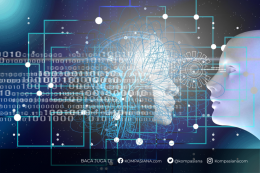Recent advancements in artificial intelligence (AI) have brought transformative changes to cancer detection and diagnosis. On October 17, 2024, new developments in AI-powered diagnostic tools were announced, demonstrating significant progress in the early detection of cancer, particularly lung, breast, and skin cancers.
These AI systems are now capable of detecting signs of cancer earlier and with greater accuracy than traditional methods, potentially saving countless lives through more timely interventions.
How AI is Revolutionizing Cancer Detection
AI in medical imaging works by using deep learning algorithms trained on vast datasets of medical scans, such as X-rays, CT scans, MRIs, and histopathology images. These algorithms analyze the images for patterns associated with cancerous tissues, which can be subtle and challenging for the human eye to detect.
Through pattern recognition, AI can identify abnormalities in the tissues and predict whether they are likely to be cancerous.
For instance, AI systems can be trained to distinguish between benign and malignant nodules in the lungs on a CT scan. When an AI model detects suspicious areas, it can alert radiologists, who then focus on examining those regions.
This collaboration between AI and radiologists increases diagnostic accuracy and reduces the chances of missing early-stage cancers, which can significantly improve patient outcomes.
Success Stories: Lung, Breast, and Skin Cancer Detection
One of the most notable areas where AI has shown promise is in the detection of lung cancer. Researchers at Stanford University recently demonstrated an AI model capable of identifying lung cancer nodules on CT scans with accuracy comparable to or even surpassing that of experienced radiologists.
The model can also assess the nodule's characteristics, such as size and growth rate, to predict the cancer's aggressiveness. This allows doctors to make more informed decisions regarding biopsy and treatment planning.
In breast cancer detection, AI models have been trained on mammogram datasets to detect subtle signs of tumors earlier than traditional screening methods. A study published by Google Health revealed that an AI system reduced false negatives by 9.4% and false positives by 5.7%, potentially decreasing the need for unnecessary biopsies and follow-up procedures.
By detecting cancer at an earlier stage, patients have a better chance of receiving effective treatment before the cancer spreads.
For skin cancer, AI systems are being developed to analyze dermatoscopic images of skin lesions, enabling early diagnosis of melanoma.
A study at the University of Heidelberg demonstrated that an AI algorithm outperformed dermatologists in diagnosing melanoma, achieving higher sensitivity and specificity in identifying malignant lesions. Such advancements in skin cancer detection are particularly crucial, given the rapid progression of melanoma.
Overcoming Challenges: Addressing Bias and Data Privacy
Despite these promising results, challenges remain in implementing AI for cancer detection on a broader scale. One major issue is bias in the training data. If the AI models are trained predominantly on datasets from a specific demographic, they may perform less effectively on patients from different backgrounds.
For example, an AI trained on predominantly Caucasian skin images might be less accurate in detecting melanoma on darker skin tones.
To mitigate these biases, ongoing research aims to diversify the training datasets and ensure the models can generalize well across different populations. Additionally, regulatory bodies are working on establishing guidelines for evaluating the performance of AI models to ensure their safety and effectiveness.
Data privacy is another concern, as using patient medical records to train AI models involves sensitive information. Stronger data anonymization techniques and compliance with regulations like the Health Insurance Portability and Accountability Act (HIPAA) in the United States are crucial for protecting patient privacy while enabling the use of data for AI training.
The Future of AI in Cancer Care
Looking ahead, AI is expected to play a more significant role in cancer care beyond detection. Researchers are exploring AI applications in treatment planning, prognosis prediction, and monitoring treatment response.
AI can help oncologists personalize cancer therapies based on a patient's genetic profile and tumor characteristics, potentially leading to more effective treatments with fewer side effects.
Furthermore, AI's integration into medical workflows is likely to evolve, allowing for real-time analysis during procedures, such as biopsies, to guide surgeons in removing cancerous tissues more precisely. With continuous advancements in AI and deep learning, the future of cancer detection and treatment appears to be more promising than ever.
References
- Stanford University Study on AI in Lung Cancer Detection - The study demonstrated that AI models could detect lung cancer nodules with accuracy comparable to radiologists, showing promise for earlier intervention and improved outcomes.
- Google Health's Research on AI for Breast Cancer Screening - Published research highlighting how AI has reduced false positives and negatives in mammogram screening, suggesting a future where AI complements radiologists in routine screenings.
- University of Heidelberg's Work on AI in Skin Cancer Diagnosis - Demonstrated AI's ability to outperform dermatologists in detecting melanoma, indicating a potential shift in early skin cancer diagnosis methodologies.
Follow Instagram @kompasianacom juga Tiktok @kompasiana biar nggak ketinggalan event seru komunitas dan tips dapat cuan dari Kompasiana. Baca juga cerita inspiratif langsung dari smartphone kamu dengan bergabung di WhatsApp Channel Kompasiana di SINI







